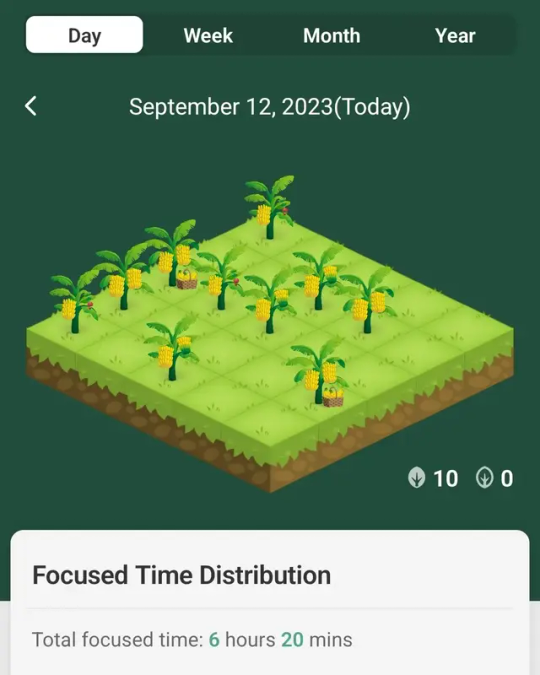#study tips for UPSC
Explore tagged Tumblr posts
Text
#UPSC preparation#General Studies classes#working professionals#Vijetha IAS Academy#study tips for UPSC#work-life balance#UPSC coaching#best UPSC classes#UPSC exam preparation
0 notes
Text
Monday, 14th August.
Day 1/100
Was a little sick today but didn't want to miss the first day. Started with Indus Valley Civilization, Ancient History, read a little newspaper and realized I need to develop a habit of revising things.


#blog post#study blog#trending#upscaspirants#indian studyblr#study tips#study inspiration#study hard#student life#100 days of productivity#upscmotivation#upscexam#upscnotes#uniblr#self discipline#studying#study#upsc#upscpreparation
29 notes
·
View notes
Text
Negative Habits to Avoid for UPSC Preparation
Imagine preparing for the UPSC exam is like setting off on a thrilling adventure. But just like any adventure, there are challenges to overcome. It takes a lot of hard work, sticking to your goals, and having a good plan. But, sometimes, even if you're really trying your best, you might find yourself doing things that could make it harder for you to succeed. In this guide, we'll explore common negative habits faced by UPSC aspirants and provide straightforward solutions to overcome them. By implementing these simple strategies, aspirants can navigate through challenges effectively and achieve success in their UPSC journey.
Procrastination - Putting Off Tasks

Procrastination is when we delay tasks or waste time on unimportant things. Many UPSC aspirants struggle with procrastination, which can lead to missed study sessions and last-minute pressure.
To overcome procrastination, break your study tasks into smaller, manageable parts. To create a sense of urgency, establish particular deadlines for every task. By taking small steps consistently, you can avoid procrastination and stay on track with your study schedule.
“You may delay, but time will not.”
― Benjamin Franklin
There are always distractions, if you allow them! Successful people remain optimistic and concentrated on their goals regardless of their surroundings. They stay focused. They avoid getting distracted, which is common in today's digital world. Social media, notifications, and other distractions can easily divert our attention away from studying.
To avoid distractions, create a dedicated study space that is free from potential distractions. Turn off notifications on your phone and use productivity tools to block distracting websites. Set specific times for studying and avoid multitasking. By minimizing distractions, you can improve focus and productivity during your study sessions.
Distractions - Losing Focus

“Work is hard. Distractions are plentiful. And time is short.”
― Adam Hochschild
Lack of Consistency

Consistency is really important for doing well in UPSC preparation. It’s key to success. However, many aspirants struggle to maintain a consistent study routine.
To overcome this, establish a daily study schedule and stick to it religiously. Make sure you stick to your study schedule and give it more importance than other things. Set realistic goals for each study session and keep checking how well you're doing. By making studying a habit and sticking to a consistent routine, you can maximize your productivity and progress in your UPSC preparation.
“Success isn't always about greatness. It's about consistency.
Consistent hard work leads to success. Greatness will come.”
― Dwayne Johnson
Neglecting Health and Adequate Sleep

UPSC preparation can be mentally and physically demanding, and many aspirants neglect their health in pursuit of their goals. However, neglecting your health can have negative consequences on your ability to study effectively. Sleep is essential for cognitive function, memory retention, and overall well-being. However, many aspirants neglect their sleep in favor of studying late into the night. This can lead to sleep deprivation, which can impair your ability to focus, concentrate, and retain information.
To prioritize your health, make sure to get an adequate amount of sleep each night. Aim for at least 7-8 hours of sleep to ensure that your mind and body are well-rested. In addition, make time for regular exercise and physical activity to reduce stress and improve overall well-being. Finally, don't forget to eat a balanced diet and stay hydrated to fuel your body and brain for studying.
Relying on One Study Method

Every aspirant has their own preferred study method, whether it's reading, taking notes, or practicing past papers. However, relying solely on one study method can limit your learning and comprehension.
To overcome this, try diversifying your study methods to engage different parts of your brain. For example, if you're used to reading, try incorporating more visual aids or discussing concepts with peers. Try out various methods of studying until you discover which one suits you the most. By diversifying your study methods, you can improve your understanding and retention of the material.
Negative self-talk can be dangerous to your confidence and motivation. Many aspirants struggle with self-doubt and fear of failure, which can hold them back from reaching their full potential.
To overcome negative self-talk, practice self-compassion and positive affirmations. Instead of focusing on your shortcomings, celebrate your achievements and strengths. Be around friends and family who support you and have faith in your skills. By cultivating a positive mindset and practicing self-love, you can overcome self-doubt and achieve success in your UPSC journey.
Negative Self-Talk - Self-Doubt

"One important key to success is self-confidence.
An important key to self-confidence is preparation."
― Arthur Ashe
Trying to Read Everything

UPSC aspirants are often overwhelmed by the sheer volume of reading material available. Many aspirants feel pressured to read every book and resource on a given topic, leading to stress and burnout.
To overcome this, focus on quality over quantity when it comes to reading. Prioritize essential books and resources that cover the core concepts and topics of the UPSC syllabus. Take notes as you read to help reinforce your understanding and retention of the material. Remember, it's better to thoroughly understand a few key concepts than to skim/go through numerous resources without grasping the core concepts.
Disorganization can hinder your ability to study effectively and efficiently. Many aspirants struggle to keep track of study materials, deadlines, and important dates.
To overcome this, create a study schedule and organize your study materials in a systematic manner. Use folders, binders, or digital tools to keep your study materials organized and easily accessible. Break down your study schedule into smaller, manageable tasks and set deadlines for each task. By staying organized, you can reduce stress and improve productivity in your UPSC preparation.
Lack of Organization

“For every minute spent organizing, an hour is earned.”
― Benjamin Franklin
Misplaced Study Groups

Study groups can be a valuable resource for UPSC aspirants, providing support, motivation, and shared knowledge. However, not all study groups are created equal, and some aspirants may find themselves in study groups that are not conducive to effective studying.
To overcome this, choose study partners wisely and find individuals who are serious and committed to their UPSC goals. Look for study groups or forums where you can engage with like-minded aspirants who share your dedication and enthusiasm for UPSC preparation. By surrounding yourself with supportive and motivated study partners, you can enhance your learning and stay on track with your UPSC goals.
Overcoming negative habits is essential for UPSC aspirants to succeed in their journey. By implementing simple strategies such as breaking tasks into smaller parts, minimizing distractions, maintaining consistency, prioritizing health, diversifying learning methods, fostering a positive mindset, finding a balance between work and study, focusing on quality reading, staying organized, choosing study partners wisely, using the internet judiciously, and prioritizing sleep, aspirants can navigate through challenges effectively and achieve success in their UPSC preparation. Remember, success in the UPSC examination requires dedication, perseverance, and a willingness to overcome obstacles. Keep pushing forward, stay focused on your goals, and believe in yourself—victory is within reach!
#upsc#education#upsc2024#upscpreparation#upscstudymaterial#quotes for upsc aspirants#quotes for students motivation#Misplaced Study Groups in UPSC Preparation#Lack of Organization in UPSC Preparation#Trying to Read Everything in UPSC Preparation#Negative Self-Talk - Self-Doubt#Relying on One Study Method#Neglecting Health and Adequate Sleep in upsc preparation#Lack of Consistency in upsc preparation#Distractions in upsc preparation#procrastination in upsc preparation#Procrastination#upsc syllabus ignorance#upsc exam strategy mistakes#ENSURE IAS coaching tips#upsc self-study bad habits#upsc time management mistakes#ENSURE IAS academy tips#upsc coaching center habits to avoid#upsc study routine mistakes#UPSC#bad habits for upsc exam#common mistakes in upsc preparation#ENSURE IAS preparation tips#negative habits for upsc aspirants
4 notes
·
View notes
Text

Day 1/100
Had a goal set for 7 hours so I'm guessing this isn't quite as bad. Yes 100 days of productivity and what not but who's gonna get me out of the afternoon passive studying wave that hits. Istg I cannot function without music in my ears after 2pm. Passive studying really is the bane of my existence. Anyway, I finished half of my to do list so and I reached about 70% potential today so I'm guessing from tomorrow I'll have three tasks organised according to priority (I read in a self help book that that's the ideal way to do it but I've always been overconfident about the fact that I can do more. Spoiler alert : I can't) I'll do better tomorrow.
P.S. having the distraction chart does help a ton.
#100 days of productivity#harsh study motivation#studyblr#study#study motivation#current affairs for upsc#civil services examination#study tips#harsh studyspo#study blog#100 days of studying
4 notes
·
View notes
Text
#Anthropology test series#best anthropology test series#anthropology coaching#anthropology exam preparation#UPSC anthropology test series#anthropology mock tests#anthropology practice papers#anthropology study tips#UPSC anthropology resources#best test series for anthropology
0 notes
Text
#Affordable General Studies coaching UPSC#Best IAS Coaching for General Studies#General Studies coaching for UPSC Exam#UPSC GS Coaching Tips#Vijetha IAS Academy
0 notes
Text
Top 5 Mistakes to Avoid During UPSC Preparation
Preparing for the UPSC Civil Services Examination is a challenging yet rewarding journey that requires strategy, discipline, and focus. Aspirants often make some common mistakes during their preparation, which can cost them precious time and effort. Avoiding these pitfalls can significantly improve your chances of clearing the exam. Here’s a list of the top five mistakes to avoid during UPSC preparation:

1. Lack of a Proper Study Plan
One of the biggest mistakes UPSC aspirants make is not having a well-structured study plan. The UPSC syllabus is vast, and without a proper strategy, you may feel overwhelmed. Some students begin studying random topics without understanding the sequence or importance of subjects.
How to Avoid:
Create a clear, subject-wise timetable.
Allocate time for revision and mock tests.
Prioritize topics based on their weightage in the exam.
Stick to your plan and monitor your progress regularly.
2. Ignoring the UPSC Syllabus and Previous Year Papers
Many aspirants start their preparation without thoroughly analyzing the syllabus and previous years’ question papers. This leads to inefficient study, as candidates may waste time on topics that are less important for the exam.
How to Avoid:
Always refer to the UPSC syllabus and have a copy with you.
Go through the past 5-10 years’ question papers to understand the UPSC Exam pattern.
Focus on topics that are repeatedly asked in both Prelims and Mains.
3. Relying on Too Many Study Materials
Another common mistake is relying on multiple sources for each subject. While there are plenty of books and resources available, too many can lead to confusion and information overload. This also affects revision, as revisiting multiple resources is time-consuming.
How to Avoid:
Stick to a few standard reference books and study materials.
Follow reliable sources like NCERTs, and supplement them with current affairs updates.
Revise from your chosen materials regularly to retain information.
4. Neglecting Answer Writing Practice
For Mains, simply acquiring knowledge isn’t enough. Writing answers effectively within the given time is crucial, yet many aspirants neglect practicing this. They may focus solely on reading and memorizing content, which can harm their performance in the actual exam.
How to Avoid:
Start practicing answer writing early, even if you haven’t completed the entire syllabus.
Join a UPSC test series or take time to write answers daily.
Focus on clarity, structure, and providing relevant examples in your answers.
5. Overlooking Mental and Physical Health
The pressure of UPSC preparation can lead some aspirants to neglect their mental and physical well-being. Long study hours without proper breaks, poor sleep, and lack of physical activity can lead to burnout and decreased productivity.
How to Avoid:
Incorporate regular breaks and relaxation into your study routine.
Engage in physical exercise, meditation, or yoga to keep your mind and body fit.
Ensure you get adequate sleep and maintain a healthy diet.
Conclusion:
Avoiding these common mistakes can make a significant difference in your UPSC preparation. A well-planned strategy, focus on revision, and maintaining a balanced lifestyle are key elements to succeeding in one of the toughest exams in the country. Stay consistent, stay focused, and avoid these pitfalls to achieve your IAS dreams.
#UPSC preparation mistakes#common mistakes in UPSC preparation#tips for UPSC success#UPSC study plan#how to clear UPSC exam#answer writing for UPSC#IAS preparation tips.
0 notes
Text
Discover expert insights on preparing for the UPSC Civil Services Exam with this comprehensive blog. Gain valuable tips and strategies to excel in one of India's most challenging examinations, ensuring a focused and effective study approach.
#UPSC Exam#Civil Services Preparation#Study Tips#upsc prelims#upsc aspirants#current affairs quiz#upsc preparation#sage university bhopal
0 notes
Text

5 Alternative Study Methods for UPSC Exams
If you are looking for other ways to improve your preparation for the UPSC exam. K3 IAS gives some tips for 5 alternative study methods for UPSC preparation. study tips and tricks upsc study tips IAS exam study tips
1 note
·
View note
Text

#UPSC Preparation from Zero Level#How to start Upsc preparation#upsc tips and tricks#upsc study strategies#upsc syllabus strategies#upsc preparation tips
1 note
·
View note
Text
#Anthropology Optional UPSC#Best Anthropology Resources#Online Anthropology Study Material#UPSC Anthropology Optional Tips#Anthropology Preparation for UPSC#Best Websites for Anthropology Optional#Anthropology Online Coaching#UPSC Anthropology Notes
0 notes
Text
How to Start Preparing for the IAS Exam from Scratch?

The UPSC Civil Services Examination (CSE) is one of the most challenging exams in India. With lakhs of aspirants appearing each year, a wellstructured approach is essential for success. If you're wondering how to start preparing for the IAS exam from scratch, this guide will provide you with actionable insights to kickstart your journey effectively.
Step 1: Understand the Exam Structure
Before diving into preparation, it's crucial to understand the three stages of the IAS exam:
1. Preliminary Examination (Prelims) – Objectivetype questions (General Studies & CSAT)
2. Mains Examination (Mains) – Descriptive papers covering various subjects
3. Personality Test (Interview) – A test of analytical ability, presence of mind, and confidence
Knowing the syllabus and exam pattern helps you create a roadmap for efficient preparation.
Step 2: Gather the Right Study Materials
Start with the basic study materials that serve as the foundation for UPSC preparation:
NCERT Books (Class 612) for History, Geography, Economics, and Polity
Standard Reference Books:
Indian Polity by M. Laxmikanth
History of Modern India by Bipan Chandra
Indian Economy by Ramesh Singh
Environment & Ecology by Shankar IAS
Daily Newspapers & Magazines: The Hindu, Indian Express, Yojana, Kurukshetra
Previous Year Question Papers & Mock Tests
Step 3: Create a Study Plan
Having a wellstructured timetable will ensure consistent progress. Follow these guidelines:
Allocate specific hours for each subject daily
Focus on revision and answer writing practice
Dedicate time for current affairs reading
Take weekly mock tests to track your progress
If you're looking for professional guidance, consider joining a reputed TNPSC coaching centre in Coimbatore for structured preparation.
Step 4: Develop Effective NoteMaking Techniques
Making concise notes is essential for revision. Follow these tips:
Use bullet points and flowcharts for quick reference
Summarize newspaper articles in a dedicated notebook
Keep separate notes for static and dynamic topics
Step 5: Practice Answer Writing
Since the Mains exam is descriptive, writing practice is crucial. Here’s how to improve:
Start writing answers based on previous year questions
Follow a structured format: Introduction, Body, Conclusion
Get your answers evaluated by mentors or peers
A TNPSC coaching centre in Coimbatore can help with personalized feedback and expert guidance.
Step 6: Stay Consistent & Motivated
IAS preparation is a marathon, not a sprint. Stay motivated with these strategies:
Follow a disciplined routine
Join study groups or coaching institutes for peer learning
Take breaks to avoid burnout
Stay inspired by reading IAS topper success stories
A TNPSC coaching centre in Coimbatore can provide a supportive environment and mentorship to keep you on track.
Conclusion
Starting your IAS exam preparation from scratch requires a strategic approach, consistency, and the right resources. By following these steps, you can build a solid foundation for success. If you need expert guidance, consider enrolling in a professional coaching center to streamline your efforts.
Are you ready to take the next step? Start your preparation today and move one step closer to achieving your IAS dreams!
2 notes
·
View notes
Text
Tueday, 12th September
Day 30/100


#study blog#blog post#study tips#that girl#trending#indian studyblr#upscaspirants#blogger#lifestyle blog#new blog#upscnotes#uni life#upscmotivation#upsc#upscexam#upscpreparation#self improvement#study hard#study#study aesthetic#study inspiration#study motivation#being productive#productivity#stay productive#100 days of productivity#self development#self discipline#stay motivated#motivation
6 notes
·
View notes
Text
Time Management Tips from IAS Coaching Centers in Bangalore

Preparing for the UPSC Civil Services Examination is no easy feat. With a vast syllabus and fierce competition, every aspirant needs a solid strategy to make the most of their time. Fortunately, IAS coaching centers in Bangalore are known for their expert guidance, not only in academics but also in effective time management techniques. These tips can help you stay on track and maximize your productivity throughout your preparation journey.
Whether you’re attending classes at Bangalore IAS classes or self-studying, these strategies—adapted from the top UPSC coaching institutes in Bangalore—can transform the way you prepare.
1. Prioritize the Syllabus with Micro-Planning
Coaching experts often stress the importance of breaking the massive UPSC syllabus into smaller, manageable chunks. At renowned civil services coaching in Bangalore, aspirants are taught to divide their study plan into daily, weekly, and monthly goals.
For example, start your mornings with a focused review of a topic from polity or history and end your day solving practice questions. A micro-plan ensures you cover all subjects systematically, leaving no room for last-minute cramming.
2. Follow the 3-Hour Rule for Study Sessions
Many IAS academies in Bangalore recommend aspirants divide their day into focused 3-hour sessions with short breaks in between. The goal is to achieve deep concentration during these periods and complete substantial portions of the syllabus without burnout.
Faculty at Bangalore IAS classes often suggest aspirants take a short 10-minute break every hour to stay mentally fresh. This approach ensures you retain information better and avoid fatigue.
3. Make Revision a Daily Habit
One key piece of advice shared at the best IAS coaching in Bangalore is the importance of daily revision. Revisiting previously studied topics helps consolidate your knowledge and builds confidence. A popular strategy among coaching centers is the “50-10-40” method:
Spend 50% of your time studying new topics.
Dedicate 10% to quick revision of the previous day’s work.
Use the remaining 40% to attempt mock tests or write practice answers.
Aspirants who incorporate this method often find themselves better prepared for both the prelims and the mains.
4. Master the Art of Note-Making
In most UPSC coaching centers in Bangalore, faculty emphasize the importance of concise, self-prepared notes. Instead of relying solely on bulky textbooks or coaching materials, learn to distill complex topics into easy-to-revise points.
Top-performing students at IAS academy Bangalore recommend creating separate notebooks for subjects like current affairs, essays, and GS topics. Highlight important points and update them regularly to stay ahead.
5. Leverage Mock Tests and Analysis
One of the standout features of top UPSC coaching institutes in Bangalore is their extensive focus on mock tests. Regularly attempting tests under exam-like conditions helps improve time management, question prioritization, and accuracy.
However, the real trick lies in analyzing your performance. Coaching centers guide aspirants to evaluate their mistakes, learn from them, and refine their strategy. This practice ensures that you’re continually improving and saving precious time on exam day.
6. Balance Classes and Self-Study
A common challenge for aspirants at civil services coaching in Bangalore is balancing classroom learning with self-study. Faculty members recommend reviewing classroom notes the same day, ensuring you retain key concepts.
Additionally, allocate at least 4-5 hours daily for self-study, focusing on strengthening weak areas or exploring additional resources recommended by mentors at your coaching institute.
7. Maintain a Healthy Study-Life Balance
Top coaches at the best IAS coaching in Bangalore stress that time management isn’t just about study hours—it’s about overall productivity. A healthy routine that includes adequate sleep, physical activity, and relaxation is crucial for maintaining mental clarity during preparation.
Taking short walks, meditating, or engaging in a hobby can help refresh your mind and boost your efficiency when you return to your study desk.
8. Use Technology to Stay Organized
With advancements in digital tools, many UPSC coaching centers in Bangalore encourage aspirants to leverage apps for time management. Calendar tools, flashcard apps, and online test portals are invaluable for tracking progress and staying consistent.
For instance, you can use apps to schedule revision sessions, set reminders for coaching classes, or track your daily goals.
Why Time Management Matters for UPSC Success
Effective time management is the backbone of every successful aspirant's journey. The best civil services coaching in Bangalore goes beyond academics to teach students how to optimize their time. These techniques aren’t just limited to study hours—they prepare you to think critically, manage stress, and approach the exam with confidence.
As many toppers from IAS academy Bangalore point out, mastering time management can be the difference between clearing the exam and falling short. Start early, stay consistent, and adapt these expert tips into your daily routine.
2 notes
·
View notes
Text

Stay ahead in your preparation for government exams with Earneasy24! We bring you the latest updates, tips, and resources for all major government exams, including SSC, UPSC, RRB, and more. Whether you're looking for detailed syllabus breakdowns, exam dates, pattern changes, or preparation strategies, Earneasy24 has got you covered. Our platform provides easy access to study materials, mock tests, and expert advice to help you succeed. We understand the importance of staying updated, and we’re here to guide you through every step of your exam journey. Don’t miss any crucial information – follow Earneasy24 for reliable and timely government exam updates. Let us help you achieve your dreams of landing a government job with confidence! hashtag#GovtExamUpdates hashtag#Earneasy24 hashtag#ExamPreparation hashtag#GovtJobs hashtag#SSC hashtag#UPSC hashtag#RRB hashtag#StudyTips hashtag#JobSuccess hashtag#GovernmentExams hashtag#ExamInfo hashtag#StayInformed hashtag#ExamReady hashtag#CareerGoals hashtag#StudyMaterials hashtag#MockTests hashtag#ExamSyllabus
4 notes
·
View notes
Text
Stay ahead in your preparation for government exams with Earneasy24! We bring you the latest updates, tips, and resources for all major government exams, including SSC, UPSC, RRB, and more. Whether you're looking for detailed syllabus breakdowns, exam dates, pattern changes, or preparation strategies, Earneasy24 has got you covered. Our platform provides easy access to study materials, mock tests, and expert advice to help you succeed. We understand the importance of staying updated, and we’re here to guide you through every step of your exam journey. Don’t miss any crucial information – follow Earneasy24 for reliable and timely government exam updates. Let us help you achieve your dreams of landing a government job with confidence!
hashtag#GovtExamUpdateshashtag#Earneasy24hashtag#ExamPreparationhashtag#GovtJobshashtag#SSChashtag#UPSChashtag#RRBhashtag#StudyTipshashtag#JobSuccesshashtag#GovernmentExamshashtag#ExamInfohashtag#StayInformedhashtag#ExamReadyhashtag#CareerGoalshashtag#StudyMaterialshashtag#MockTestshashtag#ExamSyllabus
3 notes
·
View notes